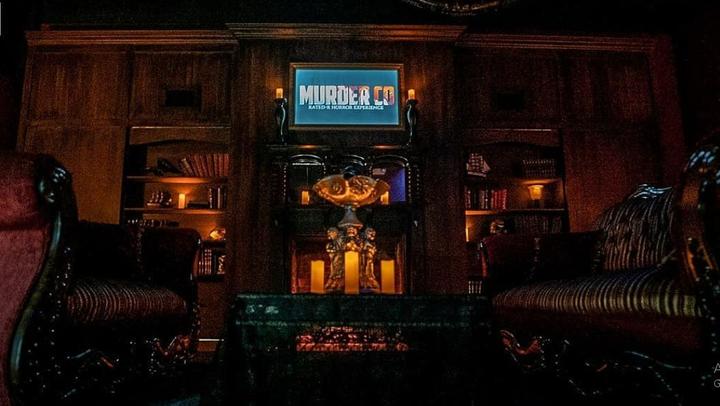Best Escape Room Experience-- Exciting Gamings and Puzzles for Teams
Group Approaches: How to Collaborate Efficiently in an Escape Area
Groups should actively pay attention to each participant's understandings, appoint duties that straighten with individual toughness, and maintain routine check-ins to make sure focus and stop redundancy. By promoting an atmosphere that values cohesion and versatility, groups can considerably enhance their performance and success prices.
Establish Clear Interaction

To help with clear communication, it is vital to mark a central factor of get in touch with for information dissemination. Short, focused updates from each group member can maintain the team notified without frustrating them with info.

Assign Functions Strategically
While clear interaction sets the foundation for effective team effort, assigning duties strategically guarantees that each staff member's strengths are used successfully. In a getaway space circumstance, the time-sensitive and complicated nature of obstacles necessitates a well-organized method to task delegation. By recognizing and leveraging individual proficiencies, teams can optimize their analytic abilities and boost overall performance.
A person with a keen eye for information may excel in discovering concealed items, while a rational thinker could be better suited to addressing challenges. This duty usually needs solid business and interpersonal abilities.
Second, ensure that functions are adaptable and adaptable. As new obstacles arise, the group has to be able to pivot, reapportioning jobs as called for. This adaptability helps preserve momentum and protects against bottlenecks that can take place because of stiff function tasks.
Eventually, a strategic approach to duty assignment not just makes the most of the strengths of each team participant yet likewise fosters a cohesive atmosphere, driving the team towards a successful retreat.
Use Diverse Skills
Recognizing and utilizing the varied skills within your team can considerably boost your performance in an escape space. Each team member brings special toughness to the table, and efficiently leveraging these abilities can accelerate analytic and boost total efficiency. For instance, a staff member with solid logical skills could stand out at understanding complex codes or patterns, while one more with eager empirical abilities may promptly spot surprise hints that may overlook.
Efficient interaction is key to making use of these varied abilities. Encourage staff member to voice their understandings and ideas without delay, guaranteeing that all potential options are taken into consideration. This comprehensive technique promotes a vibrant setting where creative thinking and critical thinking can flourish. Additionally, designating tasks that straighten with each member's strengths can prevent traffic jams and make sure that progress is continual.
Additionally, diversity in skills frequently converts to diversity in thinking more information styles, which is vital in a getaway area setup. While some difficulties may require sensible reasoning and accuracy, others could take advantage of imaginative and association of ideas. By identifying and leveraging this diversity, teams can address a wider series of challenges much more effectively, therefore boosting their possibilities of a successful getaway.
Manage Time Successfully
First, allocate first mins for a fast survey of the room. Identify noticeable problems and separate tasks based upon employee' staminas, guaranteeing that no one is idle. Establish internal time checkpoints to evaluate progression occasionally; as an example, aim to have half the puzzles addressed by the mid-point of the video game. This practice can aid keep the group focused and stop time from escaping undetected.
Additionally, stay clear of tunnel vision. If a challenge is taking too long, revolve staff member or proceed to another obstacle, returning later with fresh point of views. Interaction is extremely important-- keep everybody upgraded on fixed puzzles and staying jobs to stay clear of redundant initiatives.
Finally, use any tips or ideas sparingly but strategically - best escape room. Knowing when useful link to ask for aid can conserve beneficial time. By sticking to these time monitoring concepts, groups can considerably boost their chances of a successful and delightful getaway area experience
Debrief and Show
Reflection is an essential element of group advancement and renovation in the context of escape spaces. Once the challenge is completed, whether efficiently or not, it is vital for the team to participate in an organized debriefing session. This process permits staff member to analyze their efficiency, determine strengths, and identify locations for enhancement.
Start the debrief by discussing what worked out. Highlight particular circumstances of reliable interaction, analytic, and partnership. Identifying these favorable behaviors reinforces them and urges their repeating in future obstacles.
Next, attend to the challenges ran into. Talk about moments of confusion, miscommunication, or inefficient approaches. Encourage an open and useful discussion where staff member can share their perspectives without concern of objection. This cultivates a culture of continuous improvement and learning.
Final Thought
In verdict, successful cooperation in an escape area is asserted upon clear communication, critical role jobs, the effective utilization of varied skills, and skilled time management. By producing a natural and adaptive group environment, the probability of effectively fixing puzzles and achieving the goal of running away the room is dramatically boosted.